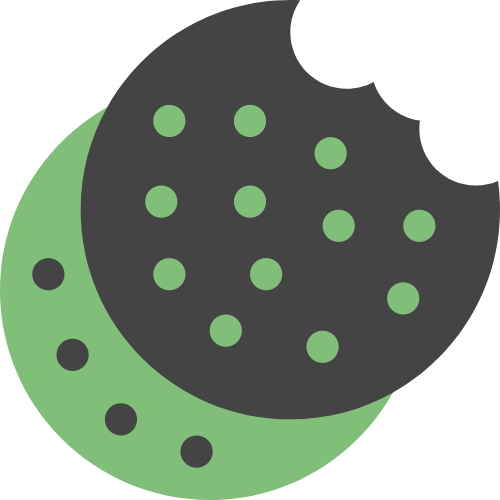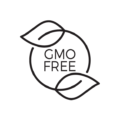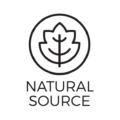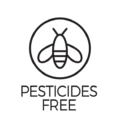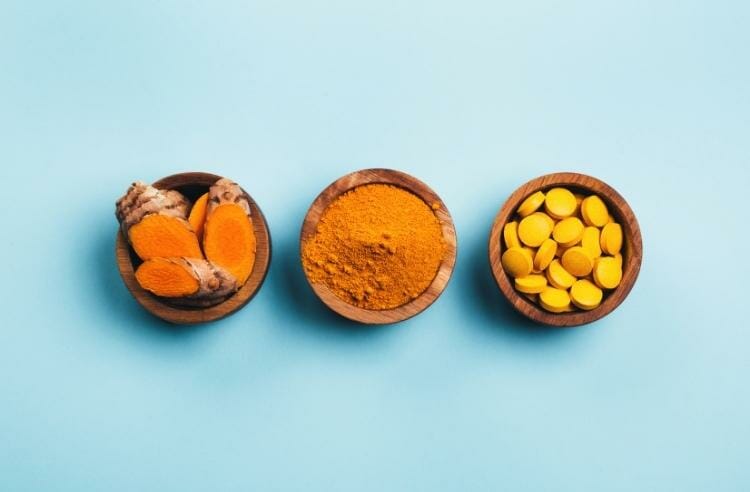
- Functional Food for your Genes
-
by k.mammasis
Are you looking for supplements to fight inflammation, then it is the right time to consider foods for inflammation instead. Doctors are discovering that one of the best ways to reduce inflammation is in the refrigerator, not the medication closet. You can permanently reduce inflammation by eating an anti-inflammatory diet. This is why in this article we chose to inform you about the best foods for inflammation and how an anti-inflammatory diet may assist you in improving your daily life in less than 3 months.
What is Inflammation?
When your body senses something alien, such as an invading microbe, plant pollen, or chemical, your immune system is engaged. This frequently results in a process known as inflammation1 2. Inflammation can be both beneficial and detrimental. On the one hand, it aids your body’s defense against infection or injury. Chronic inflammation, on the other hand, can result in disease. Stress, obesity, smoking, modern lifestyle, and inflammatory diets can all increase the risk 3.
However, inflammation can sometimes persist, even when you are not confronted by a foreign invader. And this is where inflammation suddenly becomes your worst fear. Chronic inflammation has been related to several main diseases that affect humans, including cancer, heart disease, diabetes, arthritis, depression, and Alzheimer’s4. What is less known, however, is that you can fight this naturally by including functional foods for inflammation in your daily diet.
What is the Purpose of an Anti-inflammatory Diet?
One of the most effective anti-inflammatory agents may be found in the food store, not the pharmacy. “Many experimental studies have shown that components of foods or beverages may have anti-inflammatory effects,” says Dr. Frank Hu, Professor of Nutrition and Epidemiology at the Harvard School of Public Health’s Department of Nutrition.
Certain foods have been linked to inflammation in the body. Red meat, for example, contains a lot of saturated fat. Saturated fat, along with trans fat and refined sugar, is one of the factors that induce some immune cells to release inflammatory proteins into the bloodstream. Other foods do not have this impact and, in some situations, can help to reduce inflammation. Foods high in antioxidants are included in this category. Antioxidants combat free radicals, which cause long-term cell damage and can exacerbate inflammation 5.
Because our food choices influence the degree of inflammation in our bodies, the anti-inflammatory diet is thought to reduce chronic inflammation and aid in the prevention of diseases such as heart disease, arthritis, and cancer 6.
Anti-inflammatory Foods
Dr. Hu recommends beverages and foods to minimize inflammation and, as a result, chronic disease. He specifically mentions foods and vegetables high in natural antioxidants and polyphenols—protective substances found in plants—such as pomegranates, blueberries, apples, healthy oils 7, and leafy greens8. Consider the Mediterranean diet if you want to eat in a way that closely adheres to the principles of anti-inflammatory food. Here are the best 5 foods for inflammation.
1. Pomegranate Concentrate with Turmeric Extract + D3
When it comes to anti-inflammatory foods the antioxidants contained play the most important role. Our pomegranate concentrate has record high polyphenol levels, which practically means that it will provide you with complete natural support against free radicals. In addition, this is combined with the most bioavailable form of curcumin 9 10 extract on the planet in order to further intensify the anti-inflammatory strength of this unique product. The micellized D3 that is included increases further the anti-inflammatory response and makes this product a game changing food for inflammation. We encourage you to read more on the product page.
2. Medical Olive + Algae Vegan Omega 3 Oil (EPA DHA ALA)
One on hand you receive the befits from the consumption of medical grade olive oil, whose great anti-inflammatory response has been numerously proved in clinical trials and academic research 11 12 13.
In addition, by daily consuming this functional food you will be receiving possibly the best plant based omega 3 complex that exists. Omega-3 fatty acids 14 15 are “good fats” that may help protect against heart disease, cancer, arthritis, and other conditions. There are not many vegan foods for inflammation that can provide you with an adequate amount of EPA + DHA + ALA on a daily basis, and this is exactly the reason that we designed this product.
3. Berries and Cherries
Anthocyanins are antioxidants found in berries. These substances have anti-inflammatory properties, which may lower your risk of disease. In one study of 25 adults, those who consumed blueberry powder on a daily basis produced considerably more natural killer cells (NK cells) than those who did not. These findings were consistent with those of an earlier study. 16 17 18. Additionally, cherries are tasty and high in antioxidants such as anthocyanins and catechins, which also help to reduce inflammation. In one study, 37 older adults who ingested 16 ounces (480 mL) of tart cherry juice daily for 12 weeks had considerably reduced levels of the inflammatory marker CRP 19.
4. Tomatoes
Tomatoes are truly nature’s powerhouse when it comes to vitamins, antioxidant and anti-inflammatory properties. Very high in in vitamin C, potassium, and lycopene, a very powerful antioxidant with anti-inflammatory markers 20 21. Lycopene may be especially effective in lowering pro-inflammatory chemicals linked to certain types of cancer. Because lycopene is a carotenoid, a nutrient that’s better absorbed with a source of fat, we encourage you to combine tomatoes with any of our medical grade olive oils in order to absorb more lycopene 22. have already made an excellent functional food for your genes that will fight inflammation naturally and effectively.
5. Broccoli
What more can you say about this amazing vegetable with such an amazing and established scientific research to backs up its health related benefits? Broccoli is extremely high in nutrients, along with brussels sprouts and kale. Consuming a lot of green vegetables has been linked to a lower risk of heart disease and cancer, according to research. This could be due to the anti-inflammatory properties of the antioxidants included in them. Broccoli contains sulforaphane, an antioxidant that reduces inflammation by lowering levels of cytokines and nuclear factor kappa B (NF-κB), which are molecules in your body that cause inflammation. 23 24.
Foods to Avoid
Foods high in omega 6 fatty acids are among those that cause inflammation. Although these fats are essential for bone health, cognitive function, and metabolism (the process through which food is converted into energy), ingesting too many omega 6 fatty acids can cause inflammation 25.
1. Sugar 26 27
2. Dairy products (milk, cheese, butter, and ice cream)
3. Margarine – Artificial Trans Fats 28 29
4. Meats or Processed Meat 30 31
5. Vegetable oils (e.g. corn, safflower, soybean, peanut, and cottonseed oil) 32
6. French fries and other fried foods
7. Soda and other sugar-sweetened beverages
8. Refined carbohydrates, such as white bread and pastries 33 34 35
Summary
“Doctors are learning that one of the best ways to reduce inflammation lies not in the medicine cabinet, but in the refrigerator”. By eating an anti-inflammatory diet, you can permanently reduce inflammation and dramatically enhance your general health. So, if you are ready to dive in, feel free to navigate to our Inflammation Category and discover the benefits of our functional foods designed with anti-inflammatory benefits.
A Word From MILESTONE®
MILESTONE® Food for your Genes uses only high-quality sources, including peer-reviewed studies, to support the facts within our articles. Read our editorial process to learn more about how we fact-check and keep our content accurate, reliable, and trustworthy.
- Ricker MA, Haas WC. Anti-inflammatory diet in clinical practice: a review. Nutr Clin Pract. 2017;32(3):318-25. doi:10.1177/0884533617700353[↩]
- Grandl G, Wolfrum C. Hemostasis, endothelial stress, inflammation, and the metabolic syndrome. Semin Immunopathol. 2018 Feb;40(2):215-224. doi: 10.1007/s00281-017-0666-5. Epub 2017 Dec 5. PMID: 29209827; PMCID: PMC5809518.[↩]
- Pahwa R, Goyal A, Jialal I. Chronic Inflammation. [Updated 2021 Sep 28]. In: StatPearls [Internet]. Treasure Island (FL): StatPearls Publishing; 2022 Jan-. Available from: https://www.ncbi.nlm.nih.gov/books/NBK493173/[↩]
- Ferrucci L, Fabbri E. Inflammageing: chronic inflammation in ageing, cardiovascular disease, and frailty. Nat Rev Cardiol. 2018 Sep;15(9):505–22. doi:10.1038/s41569-018-0064-2[↩]
- Maiorino MI, Bellastella G, Petrizzo M, Scappaticcio L, Giugliano D, Esposito K. Mediterranean diet cools down the inflammatory milieu in type 2 diabetes: the MÉDITA randomized controlled trial. Endocrine. 2016;54(3):634-641. doi:10.1007/s12020-016-0881-1[↩]
- Bosma-Den Boer MM, Van Wetten ML, Pruimboom L. Chronic inflammatory diseases are stimulated by current lifestyle: how diet, stress levels and medication prevent our body from recovering. Nutr Metab (Lond). 2012;9(1):32. doi:10.1186/1743-7075-9-32[↩]
- Bosma-Den Boer MM, Van Wetten ML, Pruimboom L. Chronic inflammatory diseases are stimulated by current lifestyle: how diet, stress levels and medication prevent our body from recovering. Nutr Metab (Lond). 2012;9(1):32. doi:10.1186/1743-7075-9-32[↩]
- Ricker MA, Haas WC. Anti-inflammatory diet in clinical practice: a review. Nutr Clin Pract. 2017;32(3):318-25. doi:10.1177/0884533617700353[↩]
- Pivari F, Mingione A, Brasacchio C, Soldati L. Curcumin and Type 2 Diabetes Mellitus: Prevention and Treatment. Nutrients. 2019 Aug 8;11(8):1837. doi: 10.3390/nu11081837. PMID: 31398884; PMCID: PMC6723242.[↩]
- Jayarathne S, Koboziev I, Park OH, Oldewage-Theron W, Shen CL, Moustaid-Moussa N. Anti-inflammatory and anti-obesity properties of food bioactive components: effects on adipose tissue. Prev Nutr Food Sci. 2017;22(4):251-62. doi:10.3746/pnf.2017.22.4.251[↩]
- Casas R, Sacanella E, Urpí-Sardà M, Chiva-Blanch G, Ros E, Martínez-González MA, Covas MI; Rosa Ma Lamuela-Raventos, Salas-Salvadó J, Fiol M, Arós F, Estruch R. The effects of the mediterranean diet on biomarkers of vascular wall inflammation and plaque vulnerability in subjects with high risk for cardiovascular disease. A randomized trial. PLoS One. 2014 Jun 12;9(6):e100084. doi: 10.1371/journal.pone.0100084. PMID: 24925270; PMCID: PMC4055759.[↩]
- Segura-Carretero A, Curiel JA. Current Disease-Targets for Oleocanthal as Promising Natural Therapeutic Agent. Int J Mol Sci. 2018 Sep 24;19(10):2899. doi: 10.3390/ijms19102899. PMID: 30250008; PMCID: PMC6213726.[↩]
- Parkinson L, Keast R. Oleocanthal, a phenolic derived from virgin olive oil: a review of the beneficial effects on inflammatory disease. Int J Mol Sci. 2014;15(7):12323-12334. Published 2014 Jul 11. doi:10.3390/ijms150712323[↩]
- Ricker MA, Haas WC. Anti-inflammatory diet in clinical practice: a review. Nutr Clin Pract. 2017;32(3):318-25. doi:10.1177/0884533617700353[↩]
- He Y, Yue Y, Zheng X, Zhang K, Chen S, Du Z. Curcumin, inflammation, and chronic diseases: how are they linked? Molecules. 2015 May 20;20(5):9183-213. doi: 10.3390/molecules20059183. PMID: 26007179; PMCID: PMC6272784.[↩]
- Joseph SV, Edirisinghe I, Burton-Freeman BM. Berries: anti-inflammatory effects in humans. J Agric Food Chem. 2014 May 7;62(18):3886-903. doi: 10.1021/jf4044056. Epub 2014 Mar 17. PMID: 24512603.[↩]
- Burton-Freeman BM, Sandhu AK, Edirisinghe I. Red Raspberries and Their Bioactive Polyphenols: Cardiometabolic and Neuronal Health Links. Adv Nutr. 2016 Jan 15;7(1):44-65. doi: 10.3945/an.115.009639. PMID: 26773014; PMCID: PMC4717884.[↩]
- McAnulty LS, Collier SR, Landram MJ, Whittaker DS, Isaacs SE, Klemka JM, Cheek SL, Arms JC, McAnulty SR. Six weeks daily ingestion of whole blueberry powder increases natural killer cell counts and reduces arterial stiffness in sedentary males and females. Nutr Res. 2014 Jul;34(7):577-84. doi: 10.1016/j.nutres.2014.07.002. Epub 2014 Jul 8. PMID: 25150116.[↩]
- Chai SC, Davis K, Zhang Z, Zha L, Kirschner KF. Effects of Tart Cherry Juice on Biomarkers of Inflammation and Oxidative Stress in Older Adults. Nutrients. 2019 Jan 22;11(2):228. doi: 10.3390/nu11020228. PMID: 30678193; PMCID: PMC6413159.[↩]
- Burton-Freeman B, Sesso HD. Whole food versus supplement: comparing the clinical evidence of tomato intake and lycopene supplementation on cardiovascular risk factors. Adv Nutr. 2014 Sep;5(5):457-85. doi: 10.3945/an.114.005231. PMID: 25469376; PMCID: PMC4188219.[↩]
- Imran M, Ghorat F, Ul-Haq I, Ur-Rehman H, Aslam F, Heydari M, Shariati MA, Okuskhanova E, Yessimbekov Z, Thiruvengadam M, Hashempur MH, Rebezov M. Lycopene as a Natural Antioxidant Used to Prevent Human Health Disorders. Antioxidants (Basel). 2020 Aug 4;9(8):706. doi: 10.3390/antiox9080706. PMID: 32759751; PMCID: PMC7464847.[↩]
- Rinaldi de Alvarenga JF, Quifer-Rada P, Francetto Juliano F, Hurtado-Barroso S, Illan M, Torrado-Prat X, Lamuela-Raventós RM. Using Extra Virgin Olive Oil to Cook Vegetables Enhances Polyphenol and Carotenoid Extractability: A Study Applying the sofrito Technique. Molecules. 2019 Apr 19;24(8):1555. doi: 10.3390/molecules24081555. PMID: 31010212; PMCID: PMC6514867.[↩]
- Hwang JH, Lim SB. Antioxidant and Anti-inflammatory Activities of Broccoli Florets in LPS-stimulated RAW 264.7 Cells. Prev Nutr Food Sci. 2014 Jun;19(2):89-97. doi: 10.3746/pnf.2014.19.2.089. PMID: 25054107; PMCID: PMC4103733.[↩]
- Ruhee RT, Suzuki K. The Integrative Role of Sulforaphane in Preventing Inflammation, Oxidative Stress and Fatigue: A Review of a Potential Protective Phytochemical. Antioxidants (Basel). 2020 Jun 13;9(6):521. doi: 10.3390/antiox9060521. PMID: 32545803; PMCID: PMC7346151.[↩]
- Patterson E, Wall R, Fitzgerald GF, Ross RP, Stanton C. Health implications of high dietary omega-6 polyunsaturated fatty acids. J Nutr Metab. 2012;2012:539426. doi:10.1155/2012/539426[↩]
- Schultz A, Barbosa-da-Silva S, Aguila MB, Mandarim-de-Lacerda CA. Differences and similarities in hepatic lipogenesis, gluconeogenesis and oxidative imbalance in mice fed diets rich in fructose or sucrose. Food Funct. 2015 May;6(5):1684-91. doi: 10.1039/c5fo00251f. PMID: 25905791.[↩]
- Jiang Y, Pan Y, Rhea PR, Tan L, Gagea M, Cohen L, Fischer SM, Yang P. A Sucrose-Enriched Diet Promotes Tumorigenesis in Mammary Gland in Part through the 12-Lipoxygenase Pathway. Cancer Res. 2016 Jan 1;76(1):24-9. doi: 10.1158/0008-5472.CAN-14-3432. PMID: 26729790; PMCID: PMC4703949.[↩]
- Nestel P. Trans fatty acids: are its cardiovascular risks fully appreciated? Clin Ther. 2014 Mar 1;36(3):315-21. doi: 10.1016/j.clinthera.2014.01.020. PMID: 24636816.[↩]
- Hu FB, Manson JE, Stampfer MJ, Colditz G, Liu S, Solomon CG, Willett WC. Diet, lifestyle, and the risk of type 2 diabetes mellitus in women. N Engl J Med. 2001 Sep 13;345(11):790-7. doi: 10.1056/NEJMoa010492. PMID: 11556298.[↩]
- Larsson SC, Bergkvist L, Wolk A. Processed meat consumption, dietary nitrosamines and stomach cancer risk in a cohort of Swedish women. Int J Cancer. 2006 Aug 15;119(4):915-9. doi: 10.1002/ijc.21925. PMID: 16550597.[↩]
- Santarelli RL, Pierre F, Corpet DE. Processed meat and colorectal cancer: a review of epidemiologic and experimental evidence. Nutr Cancer. 2008;60(2):131-144. doi:10.1080/01635580701684872[↩]
- Patterson E, Wall R, Fitzgerald GF, Ross RP, Stanton C. Health implications of high dietary omega-6 polyunsaturated Fatty acids. J Nutr Metab. 2012;2012:539426. doi: 10.1155/2012/539426. Epub 2012 Apr 5. PMID: 22570770; PMCID: PMC3335257.[↩]
- Spreadbury I. Comparison with ancestral diets suggests dense acellular carbohydrates promote an inflammatory microbiota, and may be the primary dietary cause of leptin resistance and obesity. Diabetes Metab Syndr Obes. 2012;5:175-89. doi: 10.2147/DMSO.S33473. Epub 2012 Jul 6. PMID: 22826636; PMCID: PMC3402009.[↩]
- Dixon LJ, Kabi A, Nickerson KP, McDonald C. Combinatorial effects of diet and genetics on inflammatory bowel disease pathogenesis. Inflamm Bowel Dis. 2015 Apr;21(4):912-22. doi: 10.1097/MIB.0000000000000289. PMID: 25581832; PMCID: PMC4366276.[↩]
- Dickinson S, Hancock DP, Petocz P, Ceriello A, Brand-Miller J. High-glycemic index carbohydrate increases nuclear factor-kappaB activation in mononuclear cells of young, lean healthy subjects. Am J Clin Nutr. 2008 May;87(5):1188-93. doi: 10.1093/ajcn/87.5.1188. PMID: 18469238.[↩]
